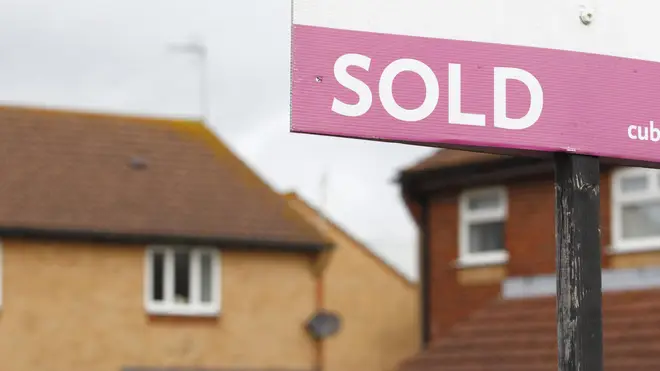
Ian Payne 4am - 7am
16 September 2020, 10:34

UK average house prices increased by 3.4% over the year to June, the Office for National Statistics said.
The average UK house price jumped by around £8,000 annually in June, according to Office for National Statistics (ONS) figures.
Property values hit a new peak of £238,000 in June, which was £8,000 higher than in June 2019, the ONS said.
Annual price growth accelerated to 3.4% in June, up from 1.1% in May, the ONS said.
On a seasonally adjusted basis, UK house prices increased by 2.4% between May and June, following a decrease of 0.1% the previous month.
The report said: “This increase may partly reflect the unusual conditions in the housing market during the coronavirus (Covid-19) pandemic.”
The average UK house price was £238,000 in June 2020 (up from £232,000 in May 2020); this is £8,000 higher than the same period a year ago https://t.co/CupguxQhcD
— Office for National Statistics (ONS) (@ONS) September 16, 2020
It continued: “The increase in prices in June 2020 may reflect some degree of pent-up demand following the easing of lockdown restrictions, particularly at the higher end of the price scale.”
Average house prices increased over the year in England to £254,000 (a 3.5% annual increase), in Wales to £168,000 (2.8%), in Scotland to £157,000 (2.9%) and in Northern Ireland to £141,000 (3.0%).
The East Midlands was the English region with the highest annual house price growth, with prices increasing by 4.5% to £201,000 on average.
Average house prices in London increased by 4.2% over the year to June to reach £490,000.
The North East continued to have the lowest average house prices within England, at £132,000, and remains the only English region yet to surpass its pre-economic downturn price peak reached in July 2007, the ONS said.
The report said: “Over the past three years, there has been a general slowdown in UK house price growth, driven mainly by a slowdown in the south and east of England.
“The beginning of 2020 saw a pick up in annual growth in the housing market before the coronavirus (Covid-19) restrictions were put in place at the end of March 2020.”
It cautioned that the impact of coronavirus on house sales means larger revisions may need to be made to the house price index estimates than usual.
Jeremy Leaf, a north London estate agent and a former residential chairman of the Royal Institution of Chartered Surveyors (Rics) said: “These figures highlight the resilience of the property market and the strength of pent-up demand even as we were recovering from lockdown and before the announcement of the stamp duty holiday.
“This comprehensive survey reflects prices paid for property and so is an indicator of some optimism. We are being told repeatedly that this mini-boom will not continue as the job retention scheme unwinds and unemployment rises but we’re not seeing many signs of that on the ground. If anything, the market is being more restrained by lender caution and lack of capacity to deal with the number of inquiries rather than demand fizzling out.”
Jamie Durham, an economist at PwC, said: “As the index captures transactions that completed in June, it is likely many of the sales were agreed prior to lockdown, however the proportion of sales agreed after lockdown will be increasing…
“Looking forward to the rest of this year, we would expect the housing market to start to weaken.
“We are already starting to see unemployment creep up as the furlough scheme unwinds, and banks have started to withdraw some mortgage products to limit their exposure to any downturn. The uncertainty that this creates is likely to mean many people will put off making any major financial decisions until the outlook is clearer.”